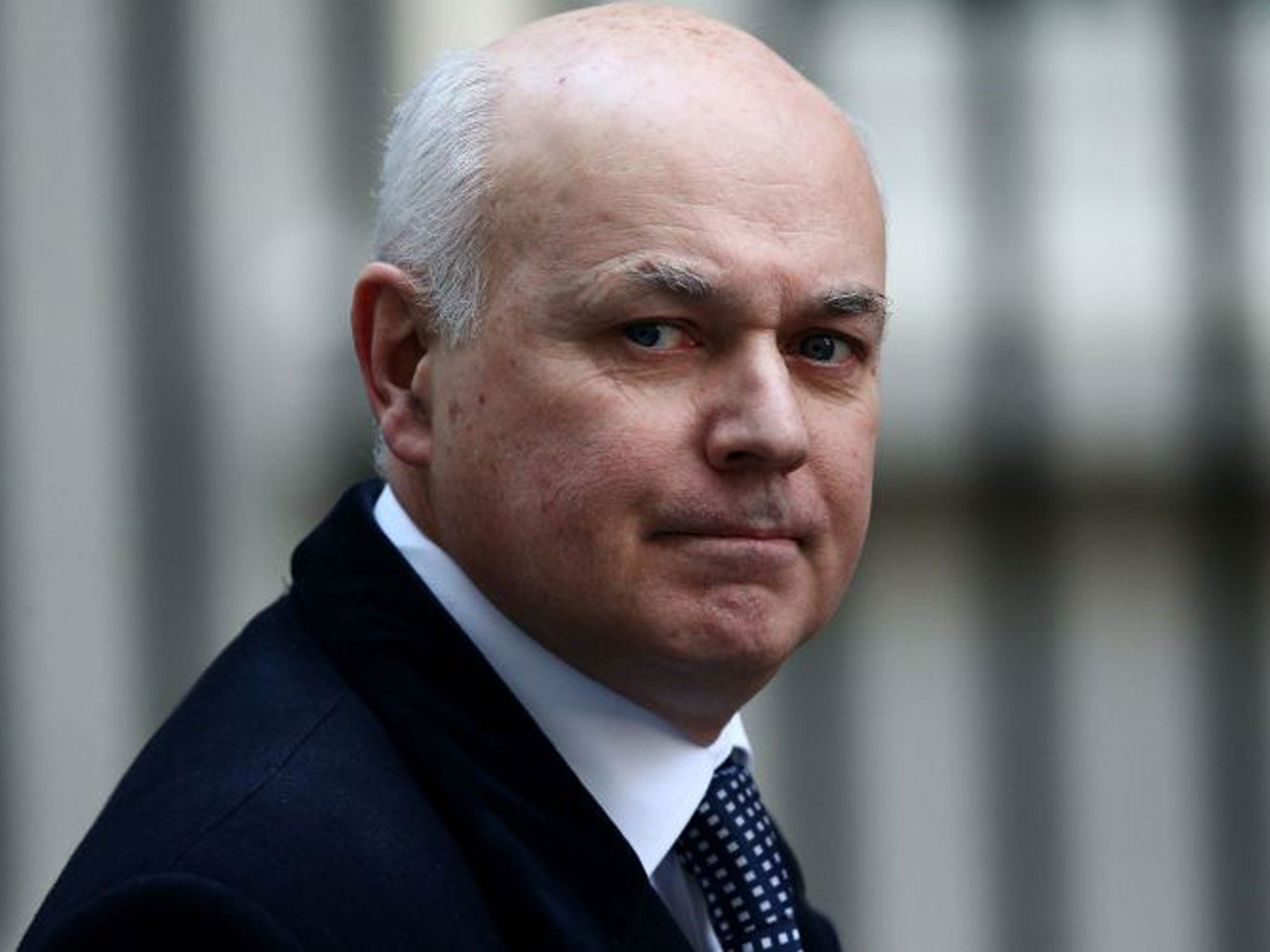New child poverty strategy revealed by Work and Pensions Secretary Iain Duncan Smith
The Social Mobility Tsar has called the document a "miss opportunity"

Work and Pensions Secretary Iain Duncan Smith revealed the Government's new draft child poverty strategy on Thursday.
It restates the Government's commitment to end child poverty by 2020 and promises to “tackle poverty at its source”.
But it been branded “a serious missed opportunity” by David Cameron's Social Mobility Tsar Alan Milburn.
Mr Duncan Smith’s failure to reach agreement with Chancellor George Osborne over rewriting the official definition of poverty was branded “beyond Whitehall farce”, by Mr Milburn, who urged ministers to go back to the drawing board.
Mr Duncan Smith agreed to put plans on hold to rewrite the definition of poverty to include factors like educational opportunity, worklessness and parental addiction.
He said in a joint article with the Chancellor on Thursday that “it is vitally important that we take the time to get it [child poverty] right”.
The document lists a range of existing policies to help children living in poverty over the coming three years, from support for childcare to free school meals.
Mr Duncan Smith said that the strategy focuses on the “underlying causes” of poverty, such as worklessness, and his Department of Work and Pensions (DWP) highlighted the reduction to 274,000 in the number of children living in workless households.
The DWP cited academic evidence published alongside the strategy to showe the key factor for child poverty now is parental worklessness, with other main factors including low parental qualifications, parental ill health, family instability and family size.
But Mr Milburn, the chairman of the Government's Social Mobility and Child Poverty Commission (SMCPC), said that the strategy “sidestepped” the fact that the situation on poverty has been “stagnating”, with independent projections suggesting it will rise significantly by the end of the decade.
“Two-thirds of child poverty is now found in working households. In three-quarters of those families, someone works full-time. That is why we called for the new child poverty strategy to deliver an ambitious detailed step-by-step plan,” wrote Mr Milburn in a blog on the SMCPC website.
Instead, he said the new document was "a list, not a strategy" and lacked any measures against which the Government can be held to account.
“A strategy which cannot be measured is meaningless,” said Mr Milburn.
Shadow work and pensions secretary Rachel Reeves said: “Child poverty is set to rise by 400,000 under David Cameron's Government, while ministers squabble over the way poverty is defined."
Mr Duncan Smith said: "Today, with the launch of our consultation on the new child poverty strategy, we restate our commitment to tackling poverty at its source - be it worklessness, family breakdown, educational failure, addiction, or debt."
The strategy was welcomed as “a step in the right direction” in a joint statement by two Church of England bishops, Bishop of Leicester Tim Stevens and Bishop of Birmingham David Urquhart.
Child poverty charities and campaigners gave the draft strategy a chilly reception.
Matthew Reed, chief executive of The Children's Society, said: "The Government's continued commitment to ending child poverty is welcome. But its strategy has no new ideas on how to make this a reality.
"Too many of the strategy's measures will fail to end child poverty. Some will make the problem worse," he added.
Downing Street insisted that child poverty had fallen since the coalition took power in 2010.
The Prime Minister's official spokesman said: “Under the principal measure that was set out in the pre-May 2010 legislation, I think child poverty is down 300,000 on that measure.
PA
Subscribe to Independent Premium to bookmark this article
Want to bookmark your favourite articles and stories to read or reference later? Start your Independent Premium subscription today.

Join our commenting forum
Join thought-provoking conversations, follow other Independent readers and see their replies
Comments